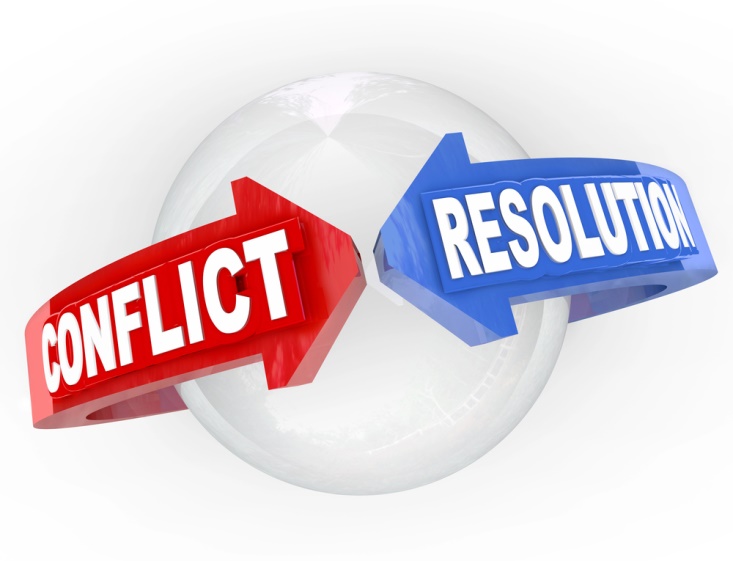
Turning Tension into Triumph: Mastering Conflict Resolution for Business Success
Business isn’t a serene walk in the park; it’s more like a high-stakes dance, where a misstep or a clash of opinions is almost guaranteed. Disagreements, differing perspectives, and tough conversations are not just part of the journey—they are the reality of running a company, leading a team, or navigating professional relationships. Yet, how we respond to these conflicts often shapes the success of our careers and businesses.
Conflict resolution isn’t simply about patching up problems or coming out on top in disagreements; it’s about turning friction into forward momentum, building bridges of understanding, and cultivating an environment where people can thrive. At its core, effective conflict resolution is deeply rooted in emotional intelligence (EQ): the art of managing your own emotions while skillfully navigating the feelings of others.
Conflict Resolution and Emotional Intelligence: The Connection
Emotional intelligence is the ability to perceive, understand, and manage emotions—both your own and those of others. When it comes to conflict resolution, EQ is indispensable. Here’s why:
Self-awareness: Recognizing your triggers and emotional responses during conflicts is essential. Are you defensive, avoidant, or prone to escalation? Understanding your patterns helps you stay calm, focused, and open-minded in tense situations.
Self-regulation: Conflict often brings out intense emotions, such as frustration, anger, or anxiety. The ability to control these feelings and respond rationally rather than reacting impulsively can make the difference between a constructive conversation and a heated argument.
Empathy: This is the cornerstone of conflict resolution. By understanding the perspectives, concerns, and emotions of others, you can address the root causes of disagreements, rather than just the surface-level issues. Empathy enables you to build trust and find solutions that are mutually beneficial.
Social skills: Navigating conflicts requires excellent communication, listening, and negotiation abilities. Leaders with high EQ can engage in difficult conversations with tact and diplomacy, ensuring that everyone feels heard and respected.
Mastering conflict resolution not only enhances your leadership capabilities but also creates a culture of collaboration, where team members feel safe expressing their opinions. When employees know that disagreements can be addressed constructively, it leads to greater innovation, creativity, and overall job satisfaction.
The Impact of Conflict Resolution on Business Success
In my experience, businesses that prioritize conflict resolution tend to outperform those that ignore or mishandle it. Here’s why:
Stronger relationships: By resolving conflicts constructively, you strengthen the bonds between team members, clients, and partners. These relationships are crucial for long-term business success.
Increased productivity: Unresolved conflicts can drain energy, focus, and motivation. Teams that address issues quickly and effectively can focus on their work without distractions, leading to higher productivity.
Reduced turnover: Workplace conflict is one of the leading causes of employee dissatisfaction. By fostering a positive, open environment where conflicts are handled respectfully, you reduce turnover and boost team morale.
Better decision-making: Disagreements can be healthy if managed properly. Diverse perspectives can lead to more robust decision-making, if conflicts are resolved in a way that leverages different viewpoints constructively.
Seven (7) Ways to Improve Your Conflict Resolution Skills
Now that we understand why conflict resolution is so critical, let’s explore how you can strengthen this skill. Here are some practical and actionable strategies:
Develop Self-Awareness
Start by reflecting on your conflict style. Are you a peacemaker, a negotiator, or someone who avoids conflict altogether? Understanding your tendencies helps you recognize how they impact your interactions.
Practice mindfulness and journaling to become more aware of your emotional responses. This will help you identify your triggers and learn to pause before reacting.
Practice Active Listening
In the heat of a conflict, it’s easy to focus on defending your viewpoint rather than truly understanding the other person. Make a conscious effort to listen more than you speak.
Paraphrase what the other person is saying to confirm your understanding and show that you value their perspective. This builds rapport and reduces defensiveness.
Stay Calm and Manage Emotions
Before engaging in a difficult conversation, take deep breaths or a short break to compose yourself. Emotional outbursts can escalate conflicts unnecessarily.
If you feel overwhelmed during a conversation, it’s okay to pause and suggest revisiting the issue later when emotions are calmer.
Be Solution-Oriented
Focus on finding solutions rather than dwelling on the problem. Approach the conflict with a collaborative mindset, asking, “How can we resolve this in a way that benefits everyone?”
Avoid assigning blame. Instead, use “I” statements (e.g., “I feel concerned when…”) to express your feelings without making the other person feel attacked.
Build Empathy
Try to see the situation from the other person’s perspective. Ask yourself, “What might they be feeling or experiencing right now?”
Use open-ended questions to encourage the other person to share their concerns. This helps you uncover the underlying issues that may not be immediately apparent.
Learn to Compromise and Be Flexible
Effective conflict resolution often requires compromise. Be willing to let go of rigid positions to find common ground.
Keep in mind that the goal is not to “win” but to reach a mutually satisfactory resolution. Be open to different perspectives and creative solutions.
Invest in Training
Consider attending workshops or reading books on conflict management to enhance your skills. Role-playing exercises and simulations can be particularly effective in building confidence.
Conflict resolution is more than just a skill—it’s a core component of emotional intelligence and a cornerstone of successful leadership. In today’s highly competitive and often contentious times, the ability to navigate conflicts with empathy, patience, and professionalism can set you apart as a leader who not only drives results but also fosters a positive and inclusive workplace culture.
By investing time and effort in honing your conflict resolution abilities, you can enhance your leadership effectiveness, improve team dynamics, and ultimately achieve greater success in your career and business.
Dr. Patty Ann
#ConflictResolution #BusinessSuccess #EQ #EmotionalIntelligence #Leadership #TeamDynamics
